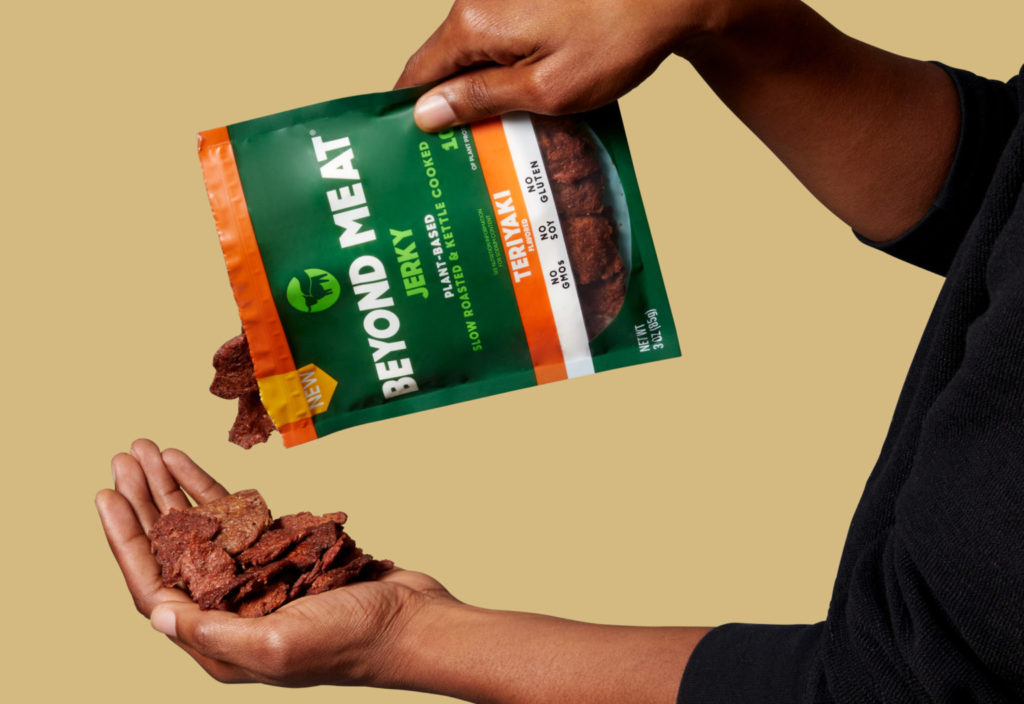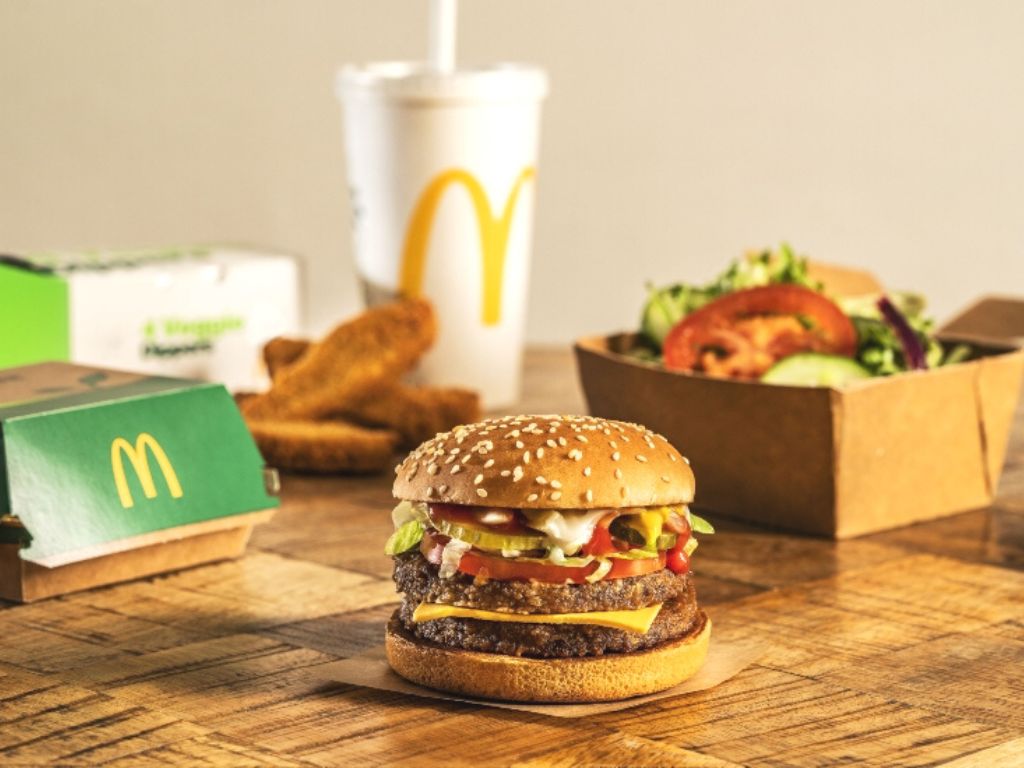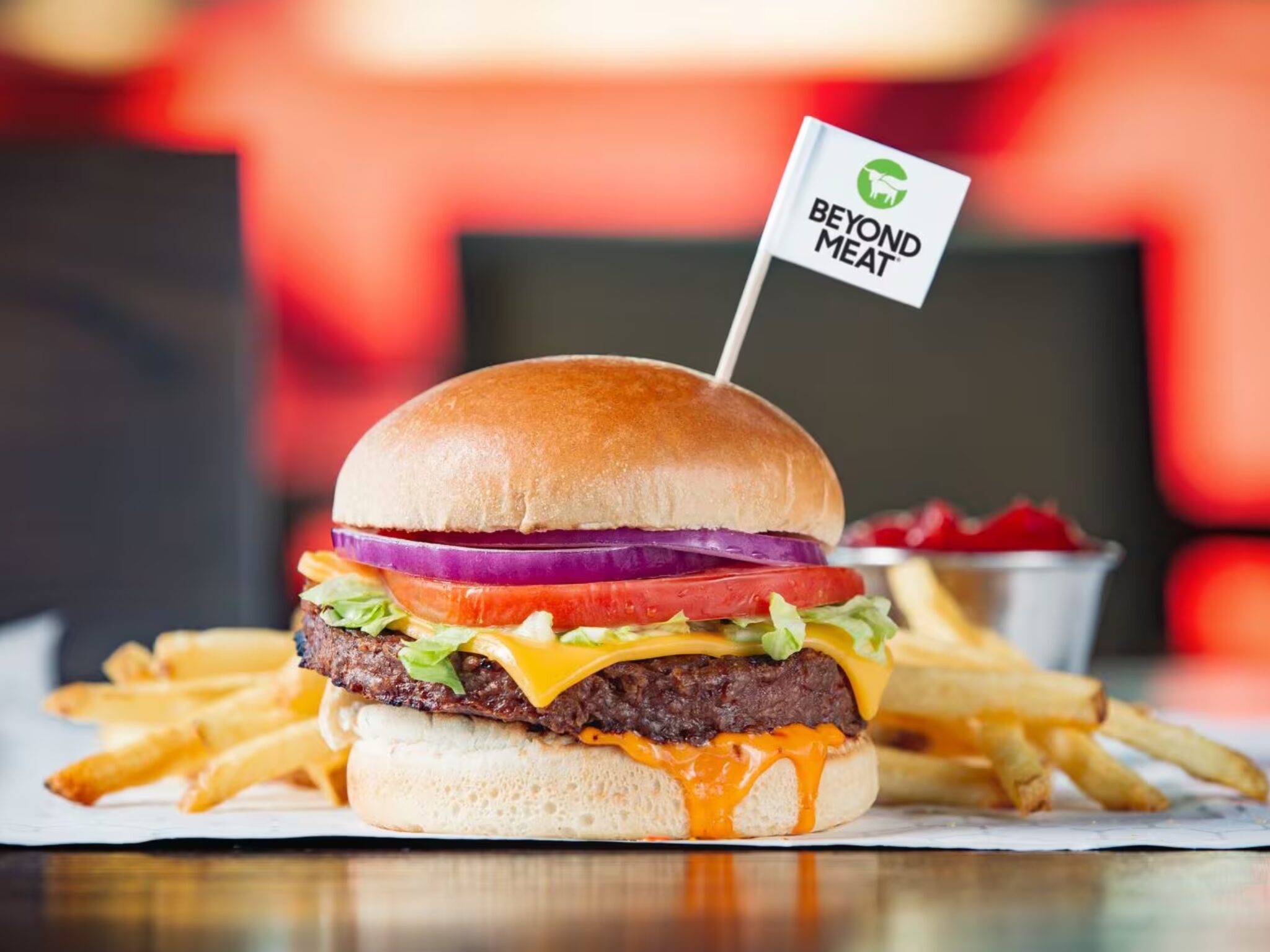Bye Bye Jerky: Beyond Meat Posts Better-Than-Expected Q4 Sales, Plans Price Increases for 2024
7 Mins Read
Plant-based giant Beyond Meat witnessed an 18% decrease in annual net revenue in 2023. Despite posting losses in Q4 too, its sales were better than expected, sending the company’s shares soaring and signalling a turnaround in fortunes for 2024.
Fresh from a product revamp with new recipes for its beef and burger analogues, Beyond Meat’s stock jumped by 78% yesterday after it posted higher-than-expected numbers in the last quarter of 2023. Quarterly revenue dropped by only 2% – compared to a 26% decline from Q2 to Q3 – to $73.7M, better than the $66.7M predicted by analysts. For the full year, the Californian company’s revenue fell by 18% to $343M.
“In 2023, Beyond Meat undertook extensive initiatives to reset the business toward sustainable operations and, ultimately, profitable growth. Much of this reset is now coming into view,” said CEO Ethan Brown. He added that the company’s plans for this year include reducing operating expenses, changing pricing structures, right-sizing its production footprint, and rolling out the Beyond IV line of products.
“We believe these sweeping changes, together with measures we plan to pursue this year to bolster our balance sheet, will strengthen our near-term operations as we pursue our vision of being the global protein company of the future,” Brown said.
Beyond Meat discontinues jerky and forecasts improved margins

Beyond Meat’s Q4 net losses doubled from the previous quarter, reaching $155M. These were heavily impacted by the one-off charges of $85M from its global operations review last year, which was launched last November to reassess elements of the business that don’t line up with profitability plans (this also involved a potential restructuring of its China operations). The company finished the year with $10.6M in capital expenditure, 85% less than 2022.
It further managed to bring down its operating expenses by 19% to $259M, following a year where it laid off 19% of its global non-production workforce (about 65 employees), consolidated its operations from 13 co-manufacturing locations in North America to just one, and discontinued its slow-selling beef jerky line (which it launched in 2022 through a partnership with PepsiCo).
“These refinements allow focus and resources to be put against our latest product platform renovation, Beyond IV, and other SKUs,” Brown said in an earnings call to analysts and investors, outlining why the company decided to discontinue the jerky, despite its position as the top-selling vegan jerky. He added that the reformulated beef products and its other analogues have a higher growth potential in the US, and that the changes reflect the business’s increased focus on Europe.
Moreover, the alt-meat giant’s yearly losses shrunk by 2.5% to $338M, and the significant restructuring and cost-cutting activities last year mean it is able to forecast improved margins for 2024 (these were in the negative in 2023).
Beyond Meat has an outstanding debt of $1.1B – owing to convertible notes (a type of investment that begins as a loan and turns into equity) that are due to be paid back in 2027. “We’re doing everything that we need to do to fix the fundamentals of the business so that we are a lower cash consumption business with a longer-term goal, obviously, of getting to sustained free cash flow positive,” said CFO Lubi Kutua.
US sales falter but McDonald’s deal boosts European performance

Beyond Meat witnessed a 32% fall in year-over-year sales in its home market in 2023. Despite pricing its products lower in grocery stores, retail revenue dropped by 27%, while foodservice figures were also down by 26%. It reflects the larger decline in US retail sales of plant-based meat, which dipped by 11% to just over $1B in the year ending January 28, 2024.
Brown ascribed this to the polarisation and politicisation of plant-based meat in the US, noting that the biggest consumption barrier for Americans is the health attributes of these products. While half of US consumers found meat alternatives healthy in 2020, that number fell to 38% in 2022. And this loss in faith has since continued, with a Mintel survey from last year showing that nutrition is the second-biggest reason (35%) for Americans’ reticence to try plant-based meat. “It’s not just the animal protein players and their lobbyists, it’s actually members of the pharmaceutical industry, which I find to be kind of disturbing, actually,” said Brown.
Beyond Meat has made health the focal point of its marketing efforts, with its latest marketing drive honing in on the Beyond Steak, which was certified as ‘heart-healthy’ by the American Heart Association (AHA). It has continued to do that with its new Beyond Burger and Beef, which has undergone a recipe change that now includes avocado oil, fava beans and red lentils, and has 60% less saturated fat, 20% less sodium, 20% more calcium, and 12% higher potassium content.
“The current climate of misinformation and efforts by incumbents – including, sadly, pharmaceutical interests – to poison the plant-based meat well push us to accelerate gains in the health profile of our product platforms,” noted Brown, adding: “We had to right the message. We can do that by yelling from the rooftops about the benefits of our existing products, or we can just try to make them even more healthy and unassailable.”
The company’s performance internationally, however, has improved by 18% from 2022-23, with both retail and foodservice sales up. This is thanks in large part to its European deal with McDonald’s, which uses the Beyond Beef patty for the vegan McPlant burger. Brown highlighted that the business had witnessed “continued traction at McDonald’s across countries such as Austria, Germany, Ireland, the Netherlands, UK, Malta, Portugal, Slovenia, and Switzerland”.
Beyond Meat to increase prices in the US this year
When Beyond Meat announced its product reformulation last week, Green Queen reported that the new burger and mince would be more expensive, given the use of premium ingredients like avocado oil. Now, it has emerged that this will coincide with a larger overhaul of the company’s pricing structure, which will see some of its products in the US become more expensive. Brown insisted that this “does not reflect an abandonment of our long-sought price parity goal, which we in fact achieved in certain very specific offerings”.
“Pricing just wasn’t as effective a tool,” he revealed. “We probably ended up selling a lot of our products to the same consumer at a reduced price. So we learned that and moved away from it.” Outlining the reasons for the higher markups, he said restoring margins was important, while the pricing programmes the company previously implemented failed to convert early adopters into the mainstream.
“In certain areas, there will be more of a delta between animal protein and ourselves, but in others, there will not be. And so, this is not a kind of crude application of a price increase. We have some very important partnerships and relationships where getting on the product line, there won’t be much change,” explained Brown.
“In retrospect, the noise and swirl surrounding the category reached decibels that were perhaps sufficient to ground out pricing and other messages,” he noted, adding that the new cost structure would take on a tiered approach across its product lines. “I do think there’s a real opportunity to continue to offer outstanding innovation year after year that does have a more premium price on it, while you continue to offer some of the rest of your portfolio at lower pricing.”
This is something Beyond Meat’s chief communication officer, Shira Zackai, highlighted last week. “Based on the significant nutritional benefits and elevated taste profile of these new products, we feel confident in the value we will be providing to consumers relative to their cost,” he told Green Queen.
The price hikes will be implemented in the US this year but, in markets like Europe, Brown admitted that the company had to adjust retail prices, which were “just too high”. Kutua highlighted that a big reason for this is the higher level of private-label penetration in Europe compared to the US. He explained that the company narrowed the price gap with its competition two years ago in Europe, but it still carries a premium in certain categories and, over time, the goal would be to further bridge that gap – though it’s not an immediate concern.
One thing the company will look to do in 2024 is expand its presence in German retail, which would be a shrewd move considering it is Europe’s largest plant-based market. Beyond Meat forecasts its 2024 revenues to be level with last year’s, between $315-345M, with Q1 sales for this year also expected to remain in the $70-75M range.
“We’re cautious in our optimism,” said Brown. “We’ve obviously had some tough years, but by making these changes and creating the sustainable baseline for which we can grow, we’re going to create some room for ourselves to execute and get back on track for growth.”




